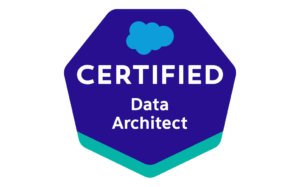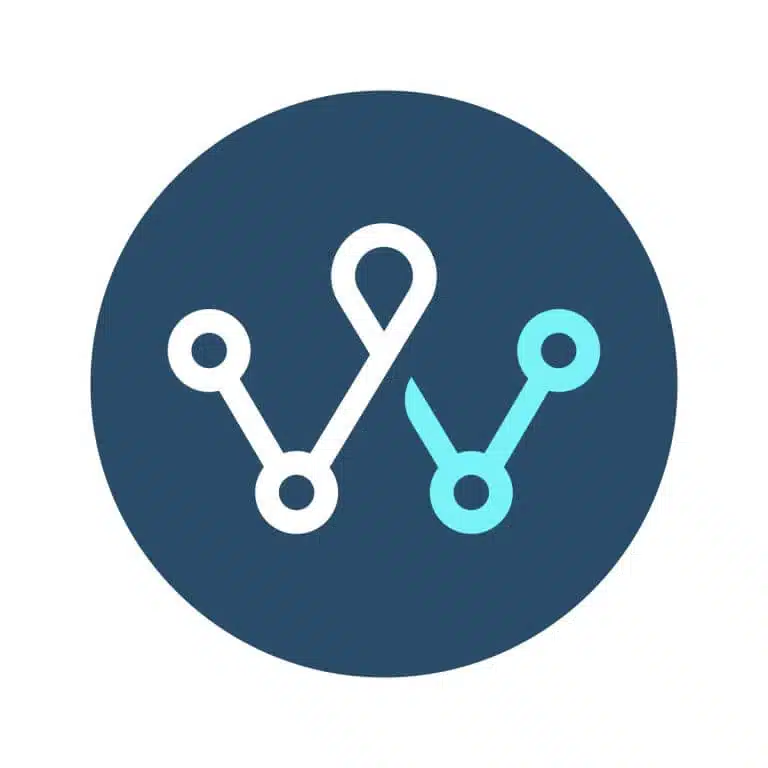Authored by: The WayPath CRM Team
Customer Relationship Management (CRM) platforms are designed to help businesses manage communications with customers. But CRM software isn’t just for the private sector. Identifying the best CRM for government agencies can vastly improve the numerous ways the public sector connects to citizens.
CRM can automate workflow, manage stakeholder communications, assist in case management, and provide citizens with an easier way to self-manage support requests and inquiries.
Government agencies face unique challenges that can make it difficult to choose the best CRM platform and implement the features they rely upon. They face budgetary constraints because they are funded by taxes that must be utilized for specific purposes. In addition to serving the general public, they manage various stakeholders in finance, administration, legislation, and IT.
Moreover, government organizations have a long history of using legacy systems that must be properly and efficiently integrated with minimal downtime, all while addressing security and privacy regulations.
In this article, we’ll present the benefits of partnering with WayPath and how our platform-agnostic approach to CRM consulting uncovers the best CRM for government agencies.
Understanding the CRM Needs of the Government
Government organizations are centered around serving citizens, providing a means for people to report issues, delivering public services, and managing relationships between multiple agencies involved in citizen engagement.
Whether it is CRM for local government or agencies at the national level, organizations need reliable technology that can simplify workflow, automate redundant tasks, and maximize efficiency.
The following are examples of how organizations are using CRM in the government sector:
- Assisting Resident Communications: CRMs can enhance communication with citizens by providing self-service portals and utility applications to improve efficiency in sharing information.
- Providing Omnichannel Engagement: CRM combines various communication forms into a unified platform, including email, SMS, voice, web, and chat functionalities.
- Integrating with Legacy Systems: CRM can connect with systems used to store data and manage field service and other operations while providing a modern way to interface with that data.
- Improving Citizen Engagement: People are more satisfied with the outcome of government communication when they can see tangible results. CRMs improve citizen engagement by automating processes, routing calls and inquiries, and streamlining manual processes that used to cause delays.
- Streamlining Procurement Processes: Using CRM for government contractors enhances visibility for negotiating rates, improving procurement processes, and maintaining proper compliance.
Unique CRM Requirements of Government Agencies
Local, state, and national governments are held to a high standard of public scrutiny. These agencies have to adhere to strict requirements, budgets, and practices. CRM helps government organizations with policy alignment and security standards, among other tasks.
Additionally, governments need to use a CRM they can integrate with other data management processes while collaborating with multiple departments and staff and managing public-facing tasks like direct communication with citizens and delivering benefits.
Compliance and Security Concerns
Government agencies heavily rely upon CRM platforms to properly manage standards that relate to citizen privacy and security. Regulations vary from state to state but generally include the following compliance requirements:
- Data Privacy: Whenever a citizen is sending or receiving sensitive, personally identifiable data, the agency providing the platform must prove they follow proper encryption guidelines and protect that data from being intercepted by cybercriminals.
- Data Storage: Similarly, when private citizen data is stored on an agency’s servers, regardless of whether they are on-premises or in the cloud, agencies must be able to show they have taken all necessary measures to protect that data.
- Administrative Privileges: Agencies must ensure that qualified government personnel only have access to the data they are cleared to access. This means different individuals have various levels of clearance for their sign-in credentials.
- Incident Response: Agencies must communicate security breaches or attempted cyberattacks when they occur and follow regulatory procedures that let the public know what data may have been accessed and what measures they need to take to protect themselves.
Choosing the right CRM platform is highly dependent on the agency’s day-to-day activities and the corresponding compliance requirements.
Some platforms may better cater to programs like FedRAMP, for instance, which sets the standard for data storage, transmission, and processing via cloud services, and requires authorized cloud services approved by Cloud Service Providers (CSPs). Other platforms are not specifically designed for cloud services but provide robust privacy and administrative security features.
Integration with Existing Systems
Integrating CRM platforms with other services can be complex and may involve numerous databases and legacy systems that need to interconnect. Integration is about unifying how the user interacts with data and providing a single location where information can be accessed. It is also about reducing redundancies and optimizing processes so organizations can function at their peak efficiency.
Data Management and Reporting
CRM platforms are used by governments to manage data from a central repository, making it possible for administrators and government agents to gain real-time insights from citizens and internal departments.
Automated reporting on financial data helps keep agents aware of budgetary concerns so they can accurately manage costs.
Whether it is queries from citizens or other data points, predefined real-time alerts report data that needs urgent attention.
Key Considerations in Choosing the Best CRM for Government
Every government agency is tasked with specific responsibilities that serve the public sector. The right CRM platform will help each entity with regard to individualized policy adherence, unique services provided, and citizen welfare.
Selecting the best CRM for government agencies requires a clear understanding of each agency’s challenges, policies, and explicit regulatory requirements. Key considerations include:
Alignment
It’s essential to ensure a CRM addresses the necessary features and can perform legacy platform integration, reporting, citizen communications, etc.
Budget and Cost Analysis
Choosing the right CRM for your agency involves the cost of implementation, customization, integrations, and migration. All of these costs should be designed to maximize efficiency and ultimately save on costs while improving how resources are utilized.
Scalability and Flexibility
Modernizing systems is necessary for agencies trying to scale operations. Antiquated systems have traditionally led to slow processing and communication. Updating one’s CRM makes it possible to adapt to changing requirements and new technological advancements while simultaneously keeping pace with increasingly larger data sets.
User-Friendly Interface and Training
Implementing a new platform can be daunting, so your new CRM must be easy to learn and adopt. Quality training and a well-designed user interface help make sure agents have the comprehensive skills needed to use the platform.
The Benefits of a Platform-Agnostic Consulting Approach
Government agencies should rely on an established CRM consultant to help in critical decisions regarding the right CRM and its implementation. A platform-agnostic consultant provides options based on your needs, not because they’re biased toward a specific platform.
A platform-agnostic consultant won’t advise you based on loyalty to a given brand but is an expert in multiple platform options. This means they can offer solutions with the greatest flexibility, optimization, and customization based on what benefits your agency the most. This includes the flexibility to adapt to changes in rules, systems, or technology.
Case Study: Successful CRM Implementation for Virginia’s Department of Transportation
WayPath understands that CRM and customer experience are directly linked, and improving system bottlenecks results in better relationship management.
The Goal
The objective was to assist the Virginia Department of Transportation (VDOT) with a better CRM solution, modernizing its on-premise system with a cloud-based migration.
The Challenge
VDOT’s mission is to deliver real-time, 24/7 support and repair using a platform shared by staff across the entire system. It was using an on-premise version of Dynamics, focusing on three critical functions:
- Hosting the Statewide Service Center
- Tracking and monitoring the Tort Claims Section
- Conducting high-level correspondence with constituents
VDOT employs over 7,500 employees and generates more than $1 billion in revenue annually to protect citizens from the impact of harsh weather and accidents. Its on-premises system simply couldn’t keep up, leaving a trail of delays in service and response. The agency needed a cost-effective way to improve response time and optimize customer experience.
The Solution
WayPath developed a detailed roadmap for VDOT, migrating their on-premises system to the Microsoft Dynamics 365 platform managed by the Government Cloud. This solution would provide an economical path for deployment and yield the highest quality results.
The Process
WayPath began with a detailed evaluation, offering an honest assessment of VDOT’s core competencies and needs, presenting a cloud-based solution built on the Microsoft Dynamics 365 platform.
Part of the challenge in migrating systems is dealing with legacy data. Information has to be moved in the correct order—with the right timing—so VDOT’s systems could continue to operate while better operations were deployed.
Along with accuracy came the challenge of time, causing as little disruption to services as possible during the migration.
The Result
The deployment went according to plan, and the value of WayPath’s roadmap demonstrated the value of migrating to a better system and conveyed the benefits to VDOT’s executive leadership team.
VDOT rated WayPath with a 10/10 Net Promoter Score (NPS), citing how planning and deployment weren’t only a success but saved VDOT months’ worth of time and valuable human resources. With their new CRM platform, they can better serve citizens.
The Consultation Process
WayPath believes proper planning leads to successful outcomes. Our comprehensive consultation process includes every element involved in solution design, implementation, integration, and any necessary customizations.
Initial Assessment and Discovery
Elevating your CRM begins with becoming familiar with your objectives, understanding your pain points, and aligning a strategy that accomplishes those objectives. This includes running a cost-benefit analysis, researching your constituents’ needs, and designing a roadmap for successful implementation.
Customized CRM Recommendations
WayPath’s CRM recommendations are tailored to your specific challenges and goals. Every government entity faces unique challenges. Likewise, WayPath will consider everything about your current operations and historical data throughout our implementation and integration process.
Implementation Planning
We will map out the organizational changes that take place during complex transitions like integrations and system migration, carrying out updates to on-premises, cloud, or hybrid platform transformations.
Ongoing Support and Optimization
We continue to support you once implementation is complete to ensure you make the best use of your new systems and that everything is operating as it should. Beyond implementing CRM upgrades, we are here to help you further optimize your new processes and iron out any needed changes, updates, or upgrades.
The WayPath Advantage
At WayPath, we understand the unique challenges facing organizations in the public sector. From seamless integrations to omnichannel engagement, complex integrations to collaborative planning, WayPath is here to ensure you move to the CRM platform that serves you best. Likewise, this empowers you to serve the public with your very best.
Contact us today and learn more about our CRM solutions.




